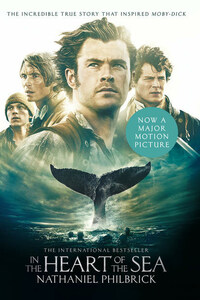HE WAS NOT YET FORTY-FIVE, but he looked much older, his health broken by four years of hardship and danger. But he had done it. He had successfully completed the voyage of a lifetime – the kind of voyage that had made heroes of Christopher Columbus and James Cook.
The odds had been against him from the start. When his squadron of six sailing vessels set out from the Norfolk Navy Yard in 1838, most of the world’s oceans had already been thoroughly explored. That had not prevented the United States from sending him on a bold, some said foolhardy mission: to scour the Southern Hemisphere of the earth for new lands.
Miraculously, he had made discoveries that would redraw the map of the world. He and his officers had surveyed dozens of uncharted Pacific islands. They had completed America’s first survey of what would one day become the states of Oregon and Washington. His team of scientists had brought back forty tons of specimens and artifacts, including two thousand never-before-identified species. Most impressive of all, he had established the existence of a new continent. Battling icebergs and gale-force winds in his fragile wooden ships, he had charted a 1,500-mile section of Antarctic coast that still bears his name: Wilkes Land.
But on that September day in 1842, just a few months after his return to the United States, Lieutenant Charles Wilkes was anything but a hero. Instead of being honored with speeches and parades, he had been put on trial in the crowded cabin of the USS North Carolina anchored in New York Harbor. Beside him sat his attorney; across from them were the judges-thirteen naval officers who were about to decide whether he was guilty of illegally whipping his men, massacring the inhabitants of a tiny Fijian island, lying about the discovery of Antarctica, and other outrages. Sitting in the gallery were many of his own officers. They whispered among themselves and smiled, confident that their hated commander would soon get his due.
He was a slight man with brown hair and a sharp blade of a nose, his cheeks pitted from smallpox and burned red by the sun and wind. Despite his haggard appearance, there was a fierceness in his eyes. After almost three weeks of testimony, it was now time for him to deliver his defense. He cleared his throat, and in a quavering, indignant voice, he began to tell his side of the story.
America’s first frontier was not the West; it was the sea. The United States began as a string of coastal communities dominated by the Atlantic Ocean – a storm-wracked wilderness that made the forests of the interior look like a beckoning refuge. But travel by road was slow and difficult in the early years of the nation, while the sea was a highway that led to just about anywhere in the world. By the late eighteenth century, American mariners had ventured around Cape Horn to the Pacific. In 1792, a sea otter trader from Boston discovered Oregon’s Columbia River-thirteen years before the arrival of Lewis and Clark. When the United States did finally send an overland expedition beyond the Rockies in 1803, it was to find a navigable waterway to the Pacific. That was why the Lewis and Clark Expedition was called a voyage of discovery. Until the Gold Rush turned the nation’s attention to the winning of the West in 1848, America’s predominant frontier was still the sea.
A decade earlier, this young nation of sea wanderers became part of an international effort to discover and explore the last unknown portions of the planet. It had begun in 1768, with the voyages of the legendary British navigator James Cook. Earlier explorers such as Columbus and Magellan had been in search of new ways of getting to old, already well-known places-in particular, the spice-rich islands of the East Indies. Their discoveries had been accidental. There had been nothing accidental about Cook’s explorations of the South Pacific. When he returned with reports of palm-fringed islands teeming with people, plants, and animals unlike anything ever seen before, the scientists of Europe clamored for more. In the decades to come, England sent out twenty-eight exploring expeditions to the Pacific; France followed with seventeen, while Spain, Russia, and Holland mounted a total of thirteen voyages among them.










